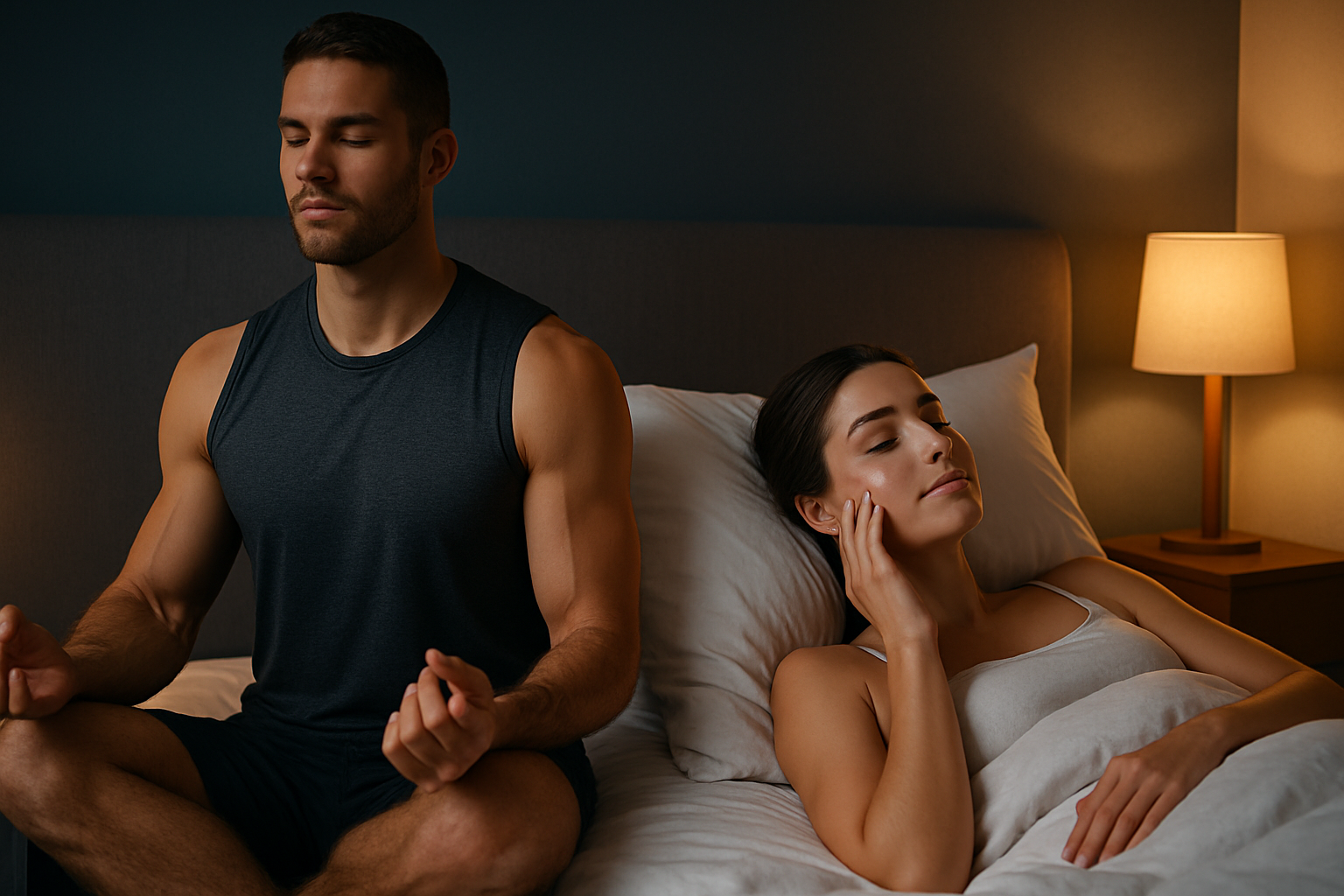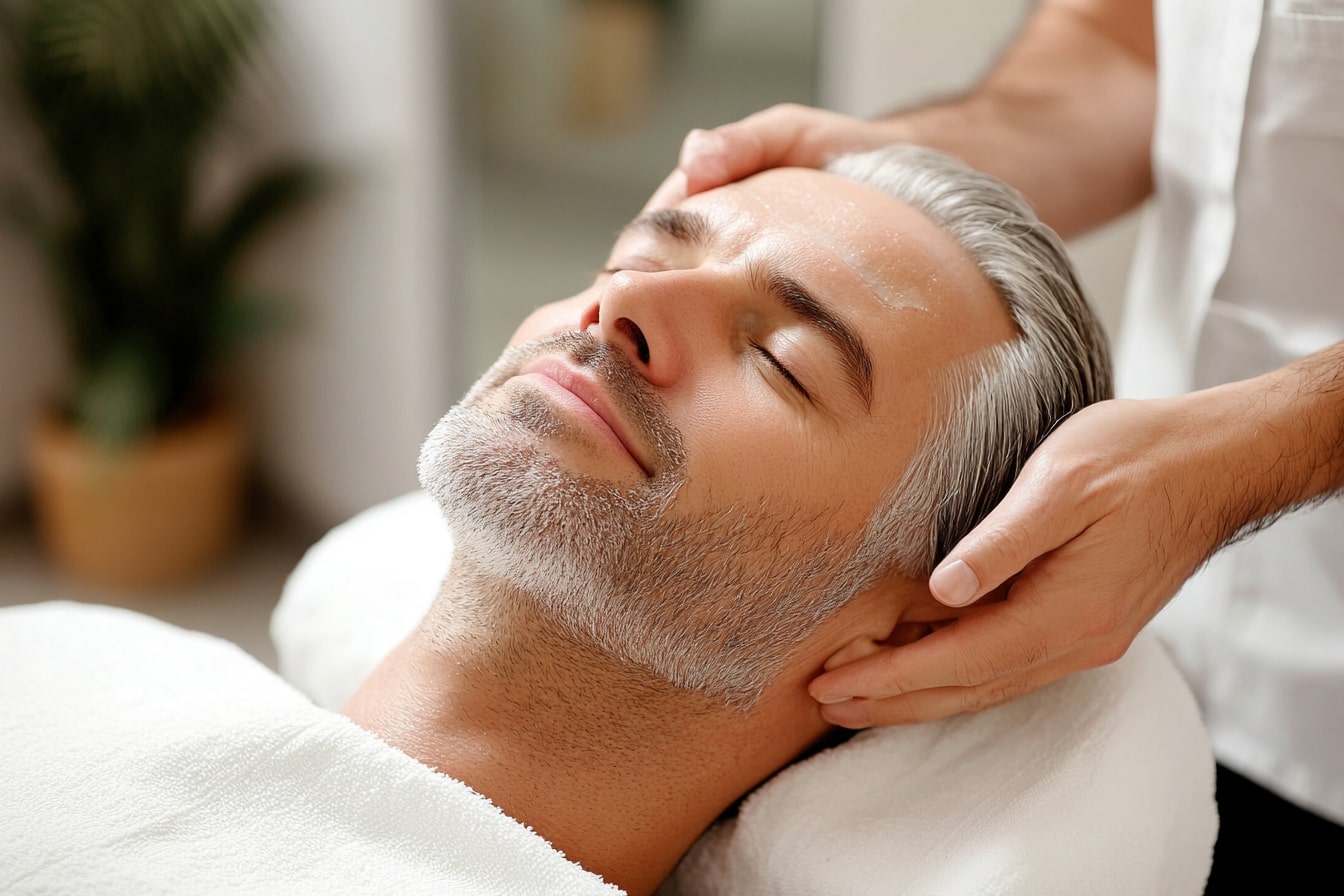Natural Remedies for Insomnia in 2026: Effective Tips for Better Sleep
Insomnia continues to affect millions worldwide, often disrupting focus, energy, and emotional balance. Fortunately, natural remedies for insomnia are helping many individuals find better sleep without medication. From herbal teas like chamomile and valerian root to essential oils and relaxation techniques, these natural approaches support a healthy sleep cycle. They can calm the nervous system, promote relaxation, and encourage your body’s natural rest rhythm. Creating a bedtime environment that supports tranquility can make a significant difference in nightly rest. Discover simple, evidence-based ways to improve sleep naturally:

Insomnia remains one of the most prevalent sleep disorders globally, with far-reaching consequences for physical health, mental wellbeing, and daily functioning. As medical understanding evolves, the integration of natural remedies with evidence-based approaches has become increasingly important in sleep medicine. Looking ahead to 2026, several natural interventions show particular promise for those struggling with sleep onset, maintenance, or quality issues. These approaches emphasize lifestyle modifications, environmental adjustments, and gentle botanical interventions that work with the body’s natural sleep mechanisms rather than overriding them.
Understanding Insomnia: Types, Causes, and Mechanisms
Insomnia isn’t simply difficulty falling asleep—it encompasses challenges with sleep initiation, maintenance, early morning awakening, and non-restorative sleep quality. Primary insomnia occurs independently, while secondary insomnia results from underlying conditions like chronic pain, anxiety, or hormonal imbalances. The neurophysiology of insomnia often involves hyperarousal of the central nervous system, with disruptions to the natural circadian rhythm and sleep-wake homeostasis. By 2026, diagnostic approaches will likely become more personalized, recognizing that insomnia manifests differently across individuals and requires tailored intervention strategies. Understanding these mechanisms helps explain why certain natural remedies may be particularly effective for specific insomnia subtypes.
Herbal Remedies for Sleep: Evidence-Based Botanicals
Plant-based sleep aids have been used across cultures for centuries, and scientific research continues to validate many traditional applications. Valerian root shows promise for reducing sleep latency through its interaction with GABA receptors, similar to certain prescription medications but with fewer side effects. Chamomile contains apigenin, which binds to benzodiazepine receptors in the brain, potentially explaining its mild sedative effects. Passionflower has demonstrated efficacy for anxiety-related insomnia in several clinical trials. Ashwagandha, an adaptogenic herb gaining popularity, helps regulate cortisol levels that can interfere with sleep when elevated at night. By 2026, standardized formulations of these botanicals may become more widely available, with improved bioavailability and targeted delivery systems enhancing their effectiveness.
Essential Oils for Relaxation: Aromatherapy Approaches
Aromatherapy utilizing essential oils offers another natural pathway to improved sleep through their effects on the limbic system and neurotransmitter function. Lavender oil has the strongest evidence base, with multiple controlled studies demonstrating reduced sleep latency and improved quality. Bergamot oil shows promise for its anxiety-reducing properties, while sweet marjoram can help relieve physical tension that interferes with sleep. Newer research suggests that certain terpenes found in these oils may directly influence sleep architecture by modulating GABA activity. Delivery methods continue to evolve, with ultrasonic diffusers, personal inhalers, and specialized pillow sprays offering controlled exposure throughout the night. By 2026, expect to see more precise formulations targeting specific sleep disruption patterns based on chronobiological research.
Mind-Body Practices for Sleep Enhancement
The connection between mental state and sleep quality has led to growing interest in mind-body interventions for insomnia. Mindfulness meditation shows particular promise, with studies demonstrating improvements in both subjective and objective sleep measures through its effects on the default mode network and stress response systems. Progressive muscle relaxation techniques help reduce physical tension that can interfere with sleep onset. Gentle yoga practices emphasizing restorative poses appear to benefit both sleep initiation and maintenance. By 2026, digital therapeutics incorporating these approaches will likely become more sophisticated, with AI-guided personalization based on individual sleep patterns and responses. These interventions address the hyperarousal often underlying chronic insomnia by activating the parasympathetic nervous system.
Environmental Optimization for Better Sleep
The sleep environment plays a crucial role in sleep quality, and evidence-based modifications continue to evolve. Beyond the basics of temperature control (ideally 65-68°F/18-20°C) and light minimization, newer research highlights the importance of air quality, with HEPA filtration potentially improving sleep for those with allergies or sensitivities. Sound conditioning using specific frequencies may help mask disruptive noises while promoting deeper sleep stages. Electromagnetic field reduction strategies are gaining attention, with some evidence suggesting that nighttime exposure to certain frequencies may disrupt melatonin production. By 2026, smart home integration will likely make these environmental optimizations more accessible and personalized, with systems that automatically adjust based on individual sleep patterns and preferences.
Nutritional Approaches to Sleep Improvement
Diet significantly impacts sleep architecture through various biochemical pathways. Tryptophan-rich foods like turkey, eggs, and cheese provide precursors for melatonin and serotonin production. Magnesium, found abundantly in leafy greens, nuts, and seeds, acts as a natural muscle relaxant and NMDA receptor antagonist that can improve sleep quality. Emerging research suggests that gut microbiome composition influences sleep through the gut-brain axis, with certain probiotic strains potentially beneficial for sleep regulation. Timing of nutrient intake also matters—by 2026, chrononutrition approaches will likely become more refined, with specific recommendations for meal timing based on individual circadian typology. Specialized sleep-promoting functional foods may also become more widely available, combining multiple active compounds for synergistic effects.
This article is for informational purposes only and should not be considered medical advice. Please consult a qualified healthcare professional for personalized guidance and treatment.
Technological Innovations Supporting Natural Sleep
While focusing on natural remedies, it’s worth noting how technology can enhance their effectiveness. Sleep tracking devices continue to evolve beyond simple motion detection to include more sophisticated metrics like heart rate variability, respiratory patterns, and even brain wave activity through non-invasive means. This data can help individuals identify which natural interventions are most effective for their specific sleep patterns. Light therapy devices with precision wavelength control can help reset circadian rhythms without medication. Neurofeedback systems teaching self-regulation of brain states conducive to sleep show promise for those with chronic insomnia. By 2026, expect greater integration between these technologies and natural remedy approaches, creating personalized sleep improvement protocols that combine the best of both worlds while minimizing pharmaceutical interventions.
The future of insomnia treatment lies in personalized, integrative approaches that recognize individual differences in sleep physiology, chronobiology, and response to interventions. Natural remedies will continue to play an important role, particularly as research refines our understanding of their mechanisms and optimal applications. While pharmaceutical options remain valuable for certain cases, the growing evidence base for natural alternatives offers hope for those seeking effective, gentler paths to restorative sleep. As we approach 2026, the combination of traditional wisdom and modern science promises more comprehensive solutions for one of humanity’s most persistent health challenges.




